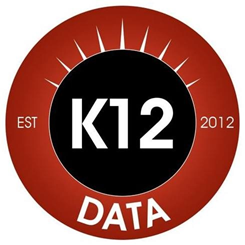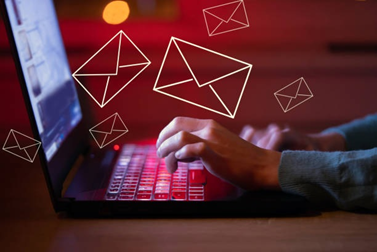In the education industry, email lists are one of the most effective tools for engaging with schools, administrators, educators, and educational institutions. For education services providers, a carefully curated and well-managed email list can be essential for promoting products, sharing resources, and building strong partnerships within the educational sector. This guide walks you through the steps to create a highly targeted and impactful email list that resonates with educational professionals.
Table of Contents
1. Define Your Target Audience and Purpose
The education sector is diverse, with various roles and needs across elementary, secondary, and post-secondary institutions. Identifying your primary audience—whether teachers, administrators, decision-makers, or support staff—is the first step in creating a valuable email list.
Key Considerations:
Are you providing resources for K-12 schools, higher education, or specialized training centers?
What solutions are you offering—professional development, technology, student resources, or classroom supplies?
Define your goals, such as increasing engagement, generating leads, or sharing industry insights.
By clarifying your purpose and understanding your audience, you can craft content that directly addresses their needs and interests.
2. Identify Trusted Sources for Collecting Contact Information
For an effective email list, rely on sources that provide accurate and verified contact information. There are several ways to collect data while ensuring relevance to the education industry:
School District and Educational Institution Websites: Many K-12 schools, districts, and colleges provide contact directories for administrators and key personnel.
Professional Education Associations: Organizations such as the National Education Association (NEA) and the American Association of School Administrators (AASA) often offer member directories and networking opportunities.
LinkedIn and Professional Networks: LinkedIn profiles of education professionals are often up-to-date and can provide contact information for targeted outreach.
Using reliable sources ensures your list is accurate and targeted, which is crucial for engaging effectively with education professionals.
3. Utilize List-Building Tools and Services
Manual list-building can be time-consuming, but with the right tools, you can efficiently gather and validate contacts. Here are some popular options:
Contact Finder Tools: Platforms like Hunter.io, Voila Norbert, and ContactOut allow you to find verified email addresses associated with specific institutions or organizations.
Data Enrichment Platforms: Tools like Clearbit and Apollo.io offer robust data enrichment options, making it easier to identify and filter contacts within the education sector.
Email Validation Services: Use services like NeverBounce or ZeroBounce to validate email addresses before you send out any communication, reducing the chances of high bounce rates and ensuring compliance.
By utilizing these tools, you save time and ensure accuracy in your list-building efforts, leading to better engagement rates.
4. Adopt a Permission-Based List-Building Approach
To maintain a high-quality email list, focus on permission-based marketing to respect privacy and build trust. This is especially important in the education sector, where recipients are busy professionals.
Create an Opt-In Form: Develop an opt-in form on your website to attract sign-ups from educators and administrators. Consider offering valuable resources like whitepapers, e-books, or access to webinars as incentives.
Leverage Lead Magnets: Offer targeted, education-specific resources that appeal to your audience’s needs, such as guides on educational trends, technology tools, or classroom management tips.
Network at Conferences and Events: Attend educational conferences, trade shows, and webinars to directly connect with potential subscribers who are genuinely interested in what you offer.
By focusing on permission-based contacts, you build a more engaged and relevant list while ensuring compliance with email marketing regulations.
5. Segment Your Email List for Effective Targeting
Segmentation helps you deliver tailored content that resonates with specific groups within the education sector. Common segmentation options include:
Role-Based Segmentation: Separate administrators, teachers, and support staff to deliver content that is relevant to their unique responsibilities.
Institution Type: Tailor content for K-12 schools, universities, or private institutions, as each has different needs.
Interests and Needs: Segment based on previously expressed interests, such as curriculum resources, technology integration, or student engagement techniques.
Targeted messaging leads to better engagement and shows your audience that you understand their specific needs and priorities.
6. Craft Value-Driven Content
Education professionals value practical, insightful, and applicable content. Make sure your emails provide solutions, inspiration, or support relevant to their daily work.
Resourceful Content: Include articles, research findings, lesson ideas, or professional development resources Click Here For More Information Education Email Lists.
7. Analyze Performance and Optimize
Continually measure and optimize your email campaigns to understand what works best for your audience. Track key metrics like open rates, click-through rates, and conversions to gauge success.
A/B Testing: Experiment with subject lines, email designs, and CTAs to learn what resonates most with your audience.
Feedback Collection: Consider including a feedback option in your emails to better understand recipient preferences and needs.
Compliance: Ensure every email offers an easy opt-out option and complies with regulations like the CAN-SPAM Act and GDPR.
Conclusion
Building a targeted email list for the education industry requires a focus on relevant, value-driven content and ethical list-building practices. By following these steps, you can create an effective communication channel with educational professionals, helping your organization forge meaningful connections and deliver valuable resources to the education sector.

Contact Us
K12 DATA, INC.
Encinitas Technology Center
533 2nd St.,SUITE 105
Encinitas, CA 92024
Phone No: 800 257 8813
Social Links:
https://www.instagram.com/k12data/







